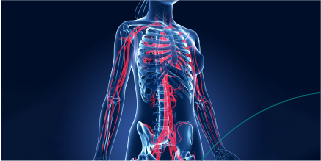
Obesity is a complex disease that is not caused by one single issue. Many things factor into the equation that leads an individual to gain weight to the point of threatening their health, such as the environment they grew up in, underlying medical conditions that prevent them from maintaining a healthy weight, or sedentary lifestyles.
Whichever the reason may be, obesity has become a global problem that affects millions of people of varying ages.
Obesity affects everyone around the world with data suggesting that “the number of obese people in the world has tripled since 1975 to roughly 30% of the total population”[1], and this number continues to rise. Just as there are many causes for obesity, there are also many consequences that may arise if a person is battling with extra weight. This disorder is one of the leading causes of death because it dramatically decreases a person’s life expectancy.
Obesity puts people at higher risk for several diseases or illnesses, such as: diabetes, heart disease, osteoarthritis, sleep apnea, strokes, and high blood pressure.
The risk of developing certain types of cancer also increases if you’re dealing with obesity and according to the Centers for Disease Control and Prevention (CDC), there are thirteen[2] potential cancer threats:
Adenocarcinoma of the esophagus, breast (in women who have gone through menopause), colon and rectum, uterus, gallbladder, upper stomach, kidneys, liver, ovaries, pancreas, thyroid, meningioma (a type of brain cancer), and multiple myeloma.
The integrative care model we offer at LIMARP® has undoubtedly made us more sensitive to all the risks a person with obesity is exposed to, and our job is to separate our patients as much as possible from the diseases which may be caused or aggravated by obesity and excess weight. Our medical team, led by Dr. Liza María Pompa González, does everything to ensure that you get the best attention possible and that your treatment goes in line with your condition; everyone responds different to each treatment, which is why it’s important to communicate to your doctor if you’re experiencing any discomfort or unmanageable side effects.
This article will focus on the link between obesity and breast cancer, why obese people are more at risk of developing cancer, and the symptoms to look out for if you fear you may have it. As always, we advise that you don’t self-diagnose and to get in touch with your doctor if you start to experience anything that may resemble the cancer symptoms that we’ll present next.
To begin, we’d like to broadly explain what breast cancer is, how it develops, and the different kinds that exist. This type of cancer occurs when the breast cells grow at an abnormal rate, especially those that are located in the lining of milk ducts and the lobules that supply these ducts with milk[3]. However, this growth abnormality can also present itself in the lobules and the connective tissue of the breast, and even spread outside the breast through blood vessels and lymph vessels, thus becoming metastasized.
The different types of breast cancer are[4]:
- Invasive ductal carcinoma
- Invasive lobular carcinoma
- Paget’s disease
- Medullary
- Inflammatory breast cancer
- Ductal carcinoma in situ
The reasons why you’re at a higher risk of developing breast cancer may vary, but some of the most common ones are obesity, hormone replacement therapy during menopause, ionizing radiation, an early age at first menstruation, having children late in life or not at all, having a prior history of breast cancer, and a family history of breast cancer. According to the American Cancer Society[5], women who are overweight or obese after menopause increases the risk of breast cancer because having more fat tissue can raise estrogen levels. Also, women who are overweight tend to have higher levels of insulin, which has been linked to this type of cancer. Obesity has also been associated with long-term inflammation and since the body treats it as an illness, it encourages more cell growth to repair it, thus increasing the risk for breast and other cancers.
Post-menopausal women who are overweight or obese have a 30 to 40% higher risk of developing breast cancer than women at a healthy weight and it’s more common for women who have gained the weight after menopause than for those who were overweight when they were younger.
Obesity can be a hurdle when it comes to treating any sickness or disease and studies[6] have shown that it can also lower the efficacy of cancer treatments and that patients are more likely to “experience complications related to surgery, radiation, and chemotherapy”.
Breast cancer alone poses a great threat to a person’s life expectancy, but these complications brought on by obesity are extremely dangerous. Before experiencing any treatment, women with a high BMI are more likely to have larger primary tumors, higher rates of lymphatic invasion, and worse overall survival compared to normal-weight patients[7].
Another study[8] signaled that an implication of “the current so-called pandemic of obesity” has the potential to lead to an increase in breast cancer in elderly women, and that many more women may be at risk world-wide than was previously thought to be the case. Diagnosing breast cancer in women who are overweight or obese can also be a problem because there is a “poorer compliance with healthy habits and they are less likely to comply with screening recommendations such as mammography”[9].
So, what are some of the main symptoms of breast cancer?
The most common ones are lumps in the breast or underarm, thickening or swelling of part of the breast, dimpling of breast skin, pulling in of the nipple or pain in the nipple area, abnormal nipple discharge, and any change in the size or the shape of the breast.
Some of these characteristics may be indicative of other conditions which can be completely unrelated to breast cancer, but it’s still important to have them checked out to make sure you don’t have any other underlying condition.
If you have any signs or symptoms that worry you, be sure to see your doctor right away.
Contact Us to Learn More
If you want more about the link between breast cancer and obesity, schedule an appointment with one of our doctors. We can help determine the right treatment for you. Contact us online anytime or give us a call at (619) 373-0229.
References
[1] “Most Obese Countries 2022”. https://worldpopulationreview.com/country-rankings/most-obese-countries. (Accessed August 22, 2022).
[2] “Obesity and Cancer”. https://www.cdc.gov/cancer/obesity/index.htm. (Accessed August 22, 2022).
[3] “Breast Cancer Treatment (Adult) (PDQ®)–Patient Version”. https://www.cancer.gov/types/breast/patient/breast-treatment-pdq#section/all. (Accessed August 22, 2022).
[4] “What Is Breast Cancer?”. https://www.cdc.gov/cancer/breast/basic_info/what-is-breast-cancer.htm. (Accessed August 22, 2022).
[5] “How Your Weight May Affect Your Risk of Breast Cancer”. https://www.cancer.org/latest-news/how-your-weight-affects-your-risk-of-breast-cancer.html. (Accessed August 22, 2022).
[6] Lee K, Kruper L, Dieli-Conwright CM, Mortimer JE. The Impact of Obesity on Breast Cancer Diagnosis and Treatment. Curr Oncol Rep. 2019 Mar 27;21(5):41. doi: 10.1007/s11912-019-0787-1. PMID: 30919143; PMCID: PMC6437123.
[7] Abe R, et al. Biological characteristics of breast-cancer in obesity. Tohoku J Exp Med. 1976;120(4):351–359. doi: 10.1620/tjem.120.351.
[8] Brown, Kristy A., and Evan R. Simpson. “Obesity and breast cancer: progress to understanding the relationship.” Cancer research 70.1 (2010): 4-7.
[9] Maruthur NM, Bolen S, Brancati FL, Clark JM. Obesity and mammography: a systematic review and meta-analysis. J Gen Intern Med. 2009;24(5):665–677. doi: 10.1007/s11606-009-0939-3.


